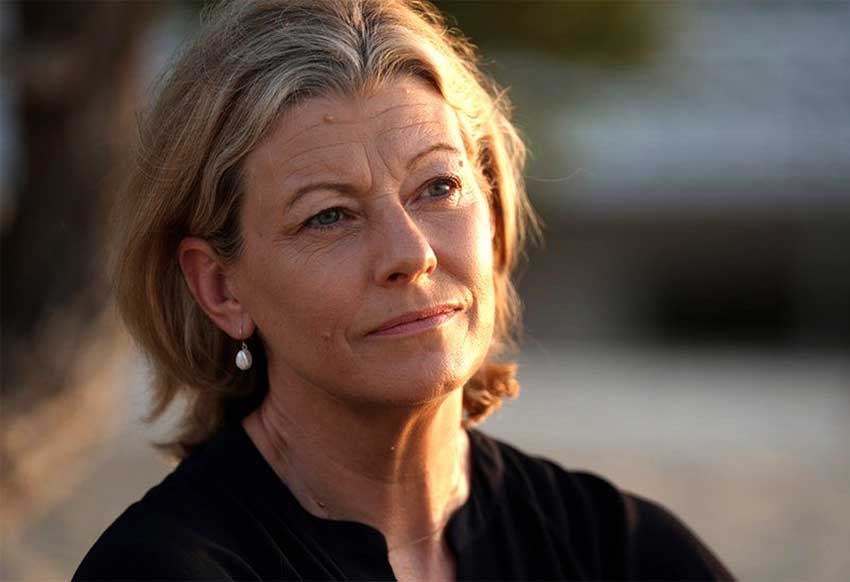
On Monday (February 27), an aristocratic British family that owned plantations and enslaved Africans in Grenada and was heavily compensated after Slavery’s Abolition, will launch a historic Family Reparations Fund.
The Travelyan Family’s unprecedented US $100,000 Reparations Fund will come with a formal family apology — and expectation that it will not only grow, but also encourage other UK families in the same boat to follow their course.
The event follows a visit to the island in 2022 by Laura Travelyan, a veteran BBC Correspondent in the USA, after learning of her family’s long-hidden secret.

She produced a popular feature for the BBC from the visit, during which she met members of the Grenada’s National Reparations Commission (GNRC), descendants of Africans enslaved on her family’s Grenada plantations – and exchanged directly secondary school students.
The revelation of the family secret coincided with a related other: the Church of England also owned slaves in Grenada — as in most (if not all) other former British West Indian colonies.
Not much detail is publicly known about Monday’s event, except that it’ll be attended by representatives of the Travelyan Family and the CARICOM Reparations Commission (CRC).
The Travelyan Family Fund has attracted as much attention as The O’Brian Repair Initiative by Digicel’s founding chairman and CEO, Denis O’Brian, each drawing both praise and criticism.
Supporters say O’Brian’s declared willingness to privately help Caribbean Community (CARICOM) member-states achieve Reparations from Europe and the Travelyan Family initiative, are both worth encouraging.
On the other hand, some opponents feel O’Brian should commit Digicel’s influential brand name to his private initiative; and still others see both initiatives as what one describes as ‘attempts by guilty Christian families to seek early Penance by paying peanuts for Absolution…’
Some Caribbean citizens are also asking why ‘Local families that benefitted from Slavery’ aren’t showing any similar willingness to apologize and atone.
Without engaging research to guide thoughts and actions, many instinctively designate every prosperous, white-skinned local family as generational beneficiaries of proceeds from Slavery, including those whose forebears arrived long after Abolition and bought or inherited post-Slavery family businesses that prospered during the colonial era.
This, nonetheless, underlines and highlights the never-ending need for continuous research by all interested parties and stakeholders, to also discover the unknown and/or unsung heroes and freedom fighters who preceded the well-known 20th Century heroes.
Many ignited the sparks that lit the flames that led to the fights for an end to colonialism that came to a head in the 1939 West Indian revolutions by workers on every British colony, leading to the Stoby Commission’s recommendations that included recognition of trade unions and political parties, but only implemented after World War II ended.
Grenada’s modern history features leaders like Caribbean trade union stalwart Uriah Butler, American Black Power icon Malcolm X (whose mother was Grenadian) and Maurice Bishop, who led the 1979 Revolution.
But there’s also the legacy of Julien Fedon and the Leapers’ Hill stories of ultimate resistance by First People and early Freedom Fighters who often united to oppose the colonial incursions.
There were also several brave revolts sparked by the French Revolution of 1789, including a 1796 defeat of the British in Saint Lucia by a smaller group of freedom fighters of multinational origin, who beheaded over a dozen selected planters by guillotine — and abolished slavery on the island for one year, before being overpowered by over 17,000 British and French troops that invaded from neighbouring French-controlled Martinique.
The 1804 triumph of the Haitian Revolution further encouraged enslaved Africans across the West Indies and The Americas to continue resisting and revolting, leading to the eventual stop-gap measures like Apprenticeship and Indentureship that preceded the inevitable Abolition of Slavery.
CARICOM’s 13-year-old Reparations cause has today gone global, with the African Union (AU) and India on board; and the CRC, through its Chair, University of the West Indies (The UWI) Vice Chancellor Sir Hilary Beckles, has significantly influenced the growth of the national Reparations movement in the USA, alongside increased organization and activity by Reparations and Black Lives Matter advocates in the UK, across Europe and The Americas and throughout The Caribbean and African Diaspora.
The Netherlands opened 2023 as the first EU nation to formally apologize for its participation in and gross benefits from Slavery, with promises to atone, which has encouraged and given hope to Reparations advocates in the European Parliament and national parliaments everywhere.
Other UK families with similar hidden secrets are naturally divided between those who fear possible legal consequences of acknowledgement and those simply appalled to learn their ancestors had benefitted grossly from Chattel Slavery — which the United Nations (UN) in 2001 declared The Worst Crime Against Humanity known to Humankind — in Britain’s West Indian colonies.
Just as Malcolm X’s family is seeking reparations by way of compensation from US Federal authorities for his death 58 years later, so too there are European families that benefitted from Slavery and are willing to follow the Travelyan example.
Both the Travelyan and O’Brian initiatives are unprecedented and success will largely depend on not just convincing anxious CARICOM governments, but also winning public support by openly engaging Doubting Thomases and addressing their doubts, employing the old and new truths that Time and History have availed the Reparations Movement in the 21st Century.
Such private initiatives all have their place alongside the public measures and mechanisms being employed by CARICOM through the CRC and NRCs and can be supported, even if only for the encouragement they can give to other families weighing the balances and counting the costs.
Meanwhile, the Travelyan and O’Brian initiatives have added new dimensions – on both sides of the Atlantic — to the many possible similar and different forms of apology and atonement by and from Europe, in response to CARICOM’s demands for Slavery and Native Genocide.












